༼ལ་རྩེ་དཔེ་མཛོད་ཁང་གི་གསལ་བསྒྲགས་ཤིག༽
༼འདིའི་གོ་རིམ་ནི་དབྱིན་ཇིའི་གསལ་བྱེད་ཀྱི་གོ་རིམ་ལྟར་བསྒྲིགས་པ་ཡིན། བོད་འགྱུར་གྱི་དེབ་མིང་དང་ནང་དོན་ངོ་སྤྲོད་ནི་འཕྲལ་སེལ་ཙམ་ཡིན། འདིར་འཁོད་པའི་བསྟན་བཅོས་རྣམས་ཀྱི་ལོ་ཙ་བ་གཏན་འཁེལ་ཏེ་ད་ལྟ་བསྒྱུར་བཞིན་ཡོད་ན་དེ་ལུགས་ཐུགས་འཇགས་འཚལ།༽
108 Translations Project: Second Set, 2017
(presented in alphabetical order)
༡ གསེར་འགྱུར་རྩི་པ། The Alchemist.
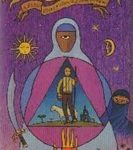 བྷར་ཛིལ་གྱི་རྩོམ་པ་པོ་ Paulo Coelho (Brazilian). ༡༩༨༨ ལོར་བརྩམས་ཤིང་། དབྱིན་འགྱུར ༡༩༩༣ ལོའི་ཐོག་མར་པར་སྐྲུན་བྱས། 1988; first published in English in 1993.
བྷར་ཛིལ་གྱི་རྩོམ་པ་པོ་ Paulo Coelho (Brazilian). ༡༩༨༨ ལོར་བརྩམས་ཤིང་། དབྱིན་འགྱུར ༡༩༩༣ ལོའི་ཐོག་མར་པར་སྐྲུན་བྱས། 1988; first published in English in 1993.
ཤོག་གྲངས་ ༢༠༨ ཡོད། 208 pages.
རྩོམ་རིགས། བརྩམས་སྒྲུང་། Genre: Fiction.
བརྩམས་སྒྲུང་འདི་རྒྱལ་སྤྱིའི་ནང་བྲིན་ཤོས་ཀྱི་དེབ་ཅིག་ཆགས་པ་དང་། ཁྱོན་བསྡོམས་དེབ་ས་ཡ་ ༢ ལྷག་ཚོང་འགྲེམས་བྱས། སྐད་ཡིག་ ༧༠ ཙམ་གྱི་ནང་བསྒྱུར། སྒྲུང་འདི་ནི་སི་པཱན་རྒྱལ་ཁབ་ཀྱི་ལུག་རྫི་ཆུང་ཆུང་ཞིག་ཨི་ཇིབ་ཏུ་གཏེར་འཚོལ་བར་ཕྱིན་ཅིང་། ལམ་དུ་འཕྲད་པའི་མི་རྣམས་ཀྱིས་ཁོང་ལ་རིན་ཐང་ཅན་གྱི་བསླབ་བྱ་གནང་བ་དང་། མཐར་གྱིས་ཁོང་གིས་གསེར་འགྱུར་རྩི་པ་ཞིག་ལ་མཇལ་ཅིང། དགེ་རྒན་འདིས་ཁོང་ལ་མུ་མཐུད་ནས་ཆོས་ཕྱོགས་ཀྱི་རྟོགས་པ་ཞིག་གི་ཁྲོད་ནས་འཇིག་རྟེན་འདིའི་དོན་དུ་གཉེར་བྱ་གང་ཡིན་པ་དང་བདག་གི་ངོ་བོ་ཉིད་གང་ཡིན་པ་བསྟན་པའི་ལོ་རྒྱུས་ཤིག་རེད།
This novel has become an international bestseller (with more than two million copies sold worldwide) and has been translated into around 70 languages. The story follows the journey of a young Andalusian shepherd who travels to Egypt in search of great treasure. The people he encounters along the way teach him valuable lessons, and when he eventually does meet an alchemist, this teacher further guides him in what it means to pursue one’s dreams, understand one’s self, and in spiritual enlightenment.
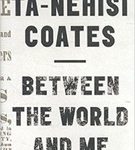 ༢ ང་དང་འཇིག་རྟེན་གྱི་བར་དུ། Between the World and Me.
༢ ང་དང་འཇིག་རྟེན་གྱི་བར་དུ། Between the World and Me.
རྩོམ་པ་པོ་ཨ་རི་བ། Ta-Nehisi Coates (American).
༢༠༠༥ ལོར་པར་སྐྲུན་བྱས། 2015.
ཤོག་གྲངས་ ༡༧༦ 176 pages.
རྩོམ་རིགས། དངོས་བརྗོད། Genre: Non-fiction.
འབོལ་རྩོམ་གྱི་ཕྲེང་བ་ཅན་གྱི་དེབ་འདི་ནི་རང་གི་བུ་ལ་བྲིས་པའི་འཕྲིན་ཡིག་གི་རྣམ་པར་བརྩམས་ཡོད་ཅིང་། དེབ་འདི་ནི་ཨ་མེ་རི་ཀའི་ནང་གི་མི་རིགས་ན་པོ་ཞིག་ཡིན་ན་ཇི་འདྲ་ཡིན་མིན་སྐོར་ཉམས་མྱོང་གི་ཐོག་ནས་བཤད་པ་ཞིག་རེད། རྩོམ་པ་པོས་ཨ་མེ་རི་ཀའི་ནང་གི་མི་རིགས་སྐོར་གྱི་ལྟ་ཚུལ་དང་། དེས་ཨ་མེ་རི་ཀའི་ལོ་རྒྱུས་ལ་བཞག་པའི་ཤུལ་རྗེས། མི་རིགས་ནག་པོའི་སྡེ་ཁག་གིས་དེ་ལ་བློས་གཏོང་ཇི་འདྲ་བྱས་ཡོད་པ་བཅས་ཀྱི་སྐོར་ཡིན། དེབ་འདིས་རྩོམ་པ་པོས་མཐོང་པའི་སྒྲིག་འཛུགས་རང་བཞིན་གྱི་མི་རིགས་དབྱེ་འབྱེད་དང་ཨ་མེ་རི་ཀའི་ནང་གི་མི་རིགས་ནག་པོ་ལ་གཉའ་གནོན་བྱས་པའི་ལོ་རྒྱུས་ནག་པོ་དེ་གནའ་དེང་གི་གནས་ཚུལ་གཉིས་ཀ་རྒྱབ་རྟེན་དུ་བཅོལ་ནས་ཞིབ་འགྲེལ་བྱས་ཡོད། རྩོམ་པ་པོ་འདི་ནི་ཨ་མེ་རི་ཀའི་ནང་གི་མི་རིགས་ཀྱི་གནད་དོན་སྐོར་ལ་རྩོམ་ཡིག་འབྲི་མཁན་གྲགས་ཅན་ཞིག་ཡིན་ལ། ཁོང་གི་བརྩམས་ཆོས་རྣམས་ཀྱིས་སྤྱི་ཚོགས་ཁྲོད་དུ་འདིའི་སྐོར་གྱི་བརྗོད་གཞི་ལ་བགྲོ་གླེང་དང་གྲོས་མོལ་བསླངས་ཡོད། ཁོང་ལ་ཨ་རིའི་ནིའུ་ཡོག་དུས་བབ་ཀྱི་དེབ་བྲིན་ཤོས་དང་རྒྱལ་ཡོངས་དཔེ་བློདེབ་ཀྱི་གཟེངས་རྟགས་སོགས་ཐོབ་ཡོད་པ་རེད།
In a series of essays, written as a letter to his son, the book is a first-hand narrative about what it is to be black in America. The author discusses the notion of race in America and how it has shaped American history and at what cost to the black community. The book explores what Coates sees as institutionalized racism, and by referring to events both past and contemporary portrays a dark history of the subjugation of black people in the United States. The author is a well-known essayist on race in America, and his work has generated much debate and discussion in the community. Distinctions include New York Times Bestseller (#1), National Book Award Winner, NAACP Image Award, Pulitzer Prize Finalist, among others.
 ༣ པུས་མོ་རྨས་མ་ཞེས་པའི་ས་ལ་ངེད་ཀྱི་སྙིང་དུར་འཇུག་བྱོས། ཨ་མེ་རི་ཀའི་ནུབ་ཕྱོགས་ཀྱི་གདོད་མའི་མི་རིགས་ཀྱི་ལོ་རྒྱུས་ཤིག
༣ པུས་མོ་རྨས་མ་ཞེས་པའི་ས་ལ་ངེད་ཀྱི་སྙིང་དུར་འཇུག་བྱོས། ཨ་མེ་རི་ཀའི་ནུབ་ཕྱོགས་ཀྱི་གདོད་མའི་མི་རིགས་ཀྱི་ལོ་རྒྱུས་ཤིག
Bury My Heart at Wounded Knee: An Indian History of the American West.
ཨ་མེ་རི་ཀའི་རྩོམ་པ་པོ། Dee Brown (American)
པར་སྐྲུན་བྱས་ལོ། ༡༩༧༠ 1970.
ཤོག་གྲངས་ ༤༨༧ 487 pages.
རྩོམ་རིགས། དངོས་བརྗོད་དང་ལོ་རྒྱུས། Genre: Non-fiction; historical.
འདི་ནི་དུས་རབས་བཅུ་དགུ་བའི་ཕྱེད་ཕྱི་མའི་སྐབས་ཀྱི་ཨ་རིའི་རྒྱ་བསྐྱེད་རིང་ལུགས་ཀྱི་ལོ་རྒྱུས་དེ་དངོས་མྱོང་བྱེད་མཁན་ཨ་མེ་རི་ཀའི་གདོད་མའི་མི་རིགས་རང་གི་མཐོང་ཚུལ་ནས་བཤད་པའི་གལ་ཆེ་ཞིང་སྔར་མེད་ཀྱི་ལོ་རྒྱུས་དེབ་ཅིག་ཡིན། དེབ་འདིས་ཨ་རིའི་གཞུང་གིས་ཁོང་ཅག་ལ་གནས་ཡུལ་བཙན་སྤོ་དང་དམག་འཁྲུག་བྱས་པ་བརྒྱུད་ནས་ཁོང་ཅག་གི་མི་མང་ཡུལ་གྱར་བྱས་པའི་སྐོར་བསྟན་ཡོད། རྩོམ་པ་པོས་མི་ཚེའི་ལོ་རྒྱུས་རྣམས་
དང་། སྒེར་གྱི་ངག་རྒྱུན་ཡིག་ཚགས། དེ་བཞིན་གདོད་མའི་མི་རིགས་ཀྱི་ལྷན་ཚོགས་ཀྱི་ཡིག་ཆ་ཁག་རྩ་འཛིན་བྱས་ནས་ཨ་རིའི་ལོ་རྒྱུས་ཀྱི་ངོས་གཞན་པ་དེ་ལ་སྨྲ་སྒོ་ཞིག་ཕྱེ་ཡོད་ཅིང་། ཕུལ་དུ་བྱུང་ཞིང་མཛེས་ཉམས་ཆེ་བའི་ཚིག་ལྷུག་གིས་རྗོད་པ་རྣམས་དྲངས་ཡོད། དེབ་འདི་ནི་ཆེས་བྲིན་ཤོས་ཀྱི་དེབ་གཅིག་ཡིན་ལ། པར་སྐྲུན་གྱི་རིམ་པ་ཆད་མ་མྱོང་བ་དང་། སྐད་ ༡༧ ཀྱི་ནང་དུ་བསྒྱུར་ཡོད་པ་རེད།
This is an important and unconventional history book that covers the history of American expansionism from a point of view of its effects on Native Americans during the second half of the 19th century. The book looks at the displacement of these peoples through forced relocation and warfare against them by the US federal government. The author refers to autobiographies, personal accounts, and council records of Native Americans to give voice to this other side of American history, and presents the narrative in classic and eloquent prose.
The book was a bestseller, has never been out of print, and has been translated into 17 languages.
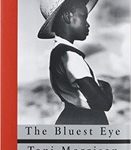 ༤ ཆེས་སྔོ་བའི་མིག The Bluest Eye.
༤ ཆེས་སྔོ་བའི་མིག The Bluest Eye.
ཨ་རི་བའི་རྩོམ་པ་མོ། Toni Morrison (American)
༡༩༧༠ ལོར་པར་སྐྲུན་བྱས། 1970.
ཤོག་གྲངས་ ༢༡༥ 215 pages.
རྩོམ་རིགས། བརྩམས་སྒྲུང་། Genre: Fiction.
འདི་ནི་ལྕམ་སྐུ་ཊོ་ནེ་ མོ་རེ་སོན་ལགས་ཀྱི་བརྩམས་སྒྲུང་ཐོག་མ་དེ་ཡིན་ལ། ༡༩༩༣ ལོར་ནོ་བྷེལ་རྩོམ་རིག་གི་བྱ་དགའ་ཐོབ་ཡོད། འདིས་ཨ་མེ་རི་ཀའི་མུ་གེ་ཆེན་པོའི་དུས་རབས་ཞེས་པའི་སྐབས་སུ་ཨོ་ཧ་ཡོ་མངའ་སྡེའི་ནང་འཚར་ལོངས་བྱུང་བའི་མི་རིགས་ནག་པོའི་བུ་མོ་ཞིག་གི་ལོ་རྒྱུས་འཆད་ཅིང་། མི་རིགས་དཀར་པོ་མང་བའི་སྡེ་བ་ཞིག་ཏུ་འཚར་ལོངས་བྱུང་སྐབས་མོས་རང་ཐོག་ནས་མི་རིགས་དབྱེ་འབྱེད་དང་བརྙས་བཅོས་མྱངས་པ་དང་། དེ་ནས་མཛེས་པ་ཞེས་པ་མི་རིགས་དཀར་པོའི་ཤ་མདོག་ལ་འབྲེལ་ཡོད་པའི་སྤྱི་ཚོགས་ཤིག་གི་ནང་དུ་རང་གི་མིག་དང་ཤ་མདོག་གི་སྐོར་ནས་མཐོ་དམའ་བཟང་ངན་ཤན་འབྱེད་ཀྱི་བསམ་བློ་ཞིག་སྐྱེས་པའི་སྐོར་རེད། མོའི་ཁྱིམ་ཚང་དུ་ཡང་རྙོག་དྲ་དང་དྲག་རྩུབ་ཀྱིས་ཁེངས་ཡོད། དེབ་འདིས་མི་རིགས་དབྱེ་འབྱེད་ཀྱི་སྐོར་དང་སྤྱི་ཚོགས་བཙན་གནོན་གྱི་སྐོར། དེ་བཞིན་མི་རིགས་ནག་པོ་ནང་ཁུལ་གྱི་དྲག་སྤྱོད་སྐོར་ཞིབ་འགྲེལ་བྱས་ཡོདཔ་རེད།
This is the first novel by Toni Morrison, who won the Nobel Prize in Literature in 1993. It tells the story of a young black girl in Ohio during the Great Depression. Growing up in a predominantly White community, she experiences racism and bullying, and develops an inferiority complex about the color of her eyes and skin in a society that associates beauty with whiteness. Her life home is also fraught with trouble and violence. The book explores issues of racism, social oppression, and violence within the black community.
 ༥ ཞར་ལོ་ཊི་ཡི་སྡོམ་ཐག Charlotte’s Web.
༥ ཞར་ལོ་ཊི་ཡི་སྡོམ་ཐག Charlotte’s Web.
ཨ་མེ་རི་ཀའི་རྩོམ་པ་པོ། E.B. White (American); illustrations by Garth Williams.
པར་སྐྲུན་བྱས་ལོ། ༡༩༥༢ 1952.
ཤོག་གྲངས་ ༡༩༢ 192 pages.
རྩོམ་རིགས། ན་གཞོན་རྩོམ་རིགས། Genre: Juvenile literature.
བྱིས་པའི་གནའ་རྩོམ་གྲགས་ཅན་འདི་ནི་མི་རབས་ཚང་མའི་ཀློག་མཁན་དག་གིས་ཧ་ཅང་དགའ་བོ་བྱེད་ཅིང་། སྐད་ ༢༣ གྱི་ནང་དུ་བསྒྱུར་པ་དང་དེབ་གྲངས་ས་ཡ་ ༤༥ ལྷག་ཚོང་འགྲེམས་བྱས་ཡོད། སྒྲུང་རྩོམ་འདི་ཞིང་ཁ་ཞིག་ཏུ་ཡོད་པའི་ཕག་པའི་མིང་ལ་ ཝེལ་བྷུར་ཟེར་བ་ཞིག་གིས་ རྩྭ་ཁང་དུ་ཡོད་པའི་སྡོམ་ ཞར་ལོ་ཊི་ ཞེས་པ་ཞིག་གྲོགས་པོ་བསྒྲིགས་ལ། སྡོམ་དེས་རང་གི་གྲོགས་ཆུང་དེའི་སྲོག་སྐྱོབ་སླད་མི་རྣམས་ཀྱིས་མཐོང་རྒྱུར་དམིགས་ཏེ་དེ་ལ་བསྟོད་བསྔགས་བྱེད་པའི་སྡོམ་ཐག་འཐེན་པར་བྱེད། གྲོགས་པོའི་འབྲེལ་བ་དང་། དཀའ་ངལ། འཁོར་བའི་མི་ཚེ། དོན་ཆུང་ཚགས་རིགས་ཀྱི་ཁྲོད་ནས་དོན་སྙིང་ཆེན་པོ་ལེན་ཐབས་སོགས་བརྗོད་གཞིར་བྱས་པའི་སྒྲུང་རྩོམ་འདི་ནི་ཁེར་ཀློག་གམ་གྱེར་ཀློག་བྱེད་པ་ལ་དཔེར་འོས་ཀྱི་དེབ་ཅིག་རེད།
This classic of children’s literature is beloved by readers of all generations. The book has been translated into 23 languages and has sold more than 45 million copies. The novel takes place on a farm and tells the story of a pig named Wilbur and his friendship with a barn spider named Charlotte, who tries to spare her young friend’s life from slaughter by weaving praiseful comments about him in her web for the humans to see. With themes of friendship, hardship, the cycle of life, and how much meaning can be found in small things, this novel is ideal for reading alone or aloud.
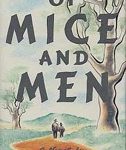 ༦ ཙི་ཙི་དང་མི་ཡི། Of Mice and Men.
༦ ཙི་ཙི་དང་མི་ཡི། Of Mice and Men.
ཨ་རིའི་རྩོམ་པ་པོ། John Steinbeck (American)
པར་སྐྲུན་བྱས་ལོ་ ༡༩༣༧ 1937.
ཤོག་གྲངས་ ༡༨༧ 187 pages.
རྩོམ་རིགས། བརྩམས་སྒྲུང་། Genre: Fiction.
ཨ་མེ་རི་ཀ་ཡི་ཆེས་དགའ་སའི་རྩོམ་པ་པོ་ ཇོན་ སི་ཊེན་བེག་ གིས་བརྩམས་པའི་སྒྲུང་འབྲི་འདིས་ནི་ཡུལ་འཁྱར་གྱིས་ཕྱུགས་རའི་གླ་བར་གྱུར་བ་གཉིས་ཀྱི་ལོ་རྒྱུས་བཤད་ཅིང་། གཅིག་ནི་བློ་རིག་པའི་རྒོད་པའི་ཇོར་ཇི་དང་། གཞན་དེ་ནི་བྱིས་པ་དང་འདྲ་བའི་ ལེན་ནེ་ཡིན། ཁོང་གཉིས་ཨ་མེ་རི་ཀའི་མུ་གེ་ཆེན་པོའི་དུས་རབས་ཀྱི་སྐབས་སུ་ ལས་ཀ་འཚོལ་སླད་ཁ་ལི་ཧྥོར་ནི་ཡ་མངའ་སྡེའི་ཕྱོགས་གང་སར་བསྐྱོད་པར་བྱེད་ལ། གཟུགས་པོ་དང་སེམས་ཁམས་གང་ཐད་ནས་གྲོགས་པོ་ཆགས་འོས་མེད་པའི་གྲོགས་པོ་འདི་གཉིས་ཀྱིས་རང་རང་གི་ས་ཞིང་ཞིག་འཛིན་ཕྱིར་སྒོར་མོ་ལྡང་ངེས་གསོག་རྒྱུའི་རེ་སྨོན་བྱེད་ཅིང་། ཇོར་ཇི་ནི་ ལེན་ནེ་ཡི་སྲུང་སྐྱོབ་པ་ཞིག་གི་ཚུལ་འཛིན་ལ། རང་གི་རེ་སྨོན་སྐོར་གྱི་སྒྲུང་དང་གཏམ་རྒྱུད་འཆད། ཁོང་ཚོའི་རེ་སྨོན་འགྲུབ་ལ་ཉེ་སྐབས་ལས་དབང་གིས་བར་ཆད་གཏོང་བར་བྱེད། དེབ་འདིའི་བརྗོད་གཞི་ནི་ཁེར་རྐྱང་དང་གྲོགས་འབྲེལ། རེ་སྨོན་དང་བློས་གཏོགས་སོགས་ལ་འབྲེལ་ཡོད་པ་རེད།
This novella by beloved American author John Steinbeck tells the story of two displaced migrant ranch workers, the quick-witted George and the childlike Lennie, who travel across California in search of work during the Great Depression. An unlikely pair, both in physicality and in temperament, the two friends have a dream to earn enough money to establish a farm of their own. George, who acts as protector to Lennie, repeats stories and iterations about this dream. Just as their aim is in sight, fate cruelly intervenes. The book’s themes include loneliness, companionship, dreams, and sacrifice.
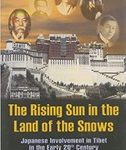 ༧ ཁ་བའི་ལྗོངས་ལ་ཤར་བའི་ཉི་མ་གཞོན་ནུ། ཉི་ཧོང་གིས་དུས་རབས་ཉི་ཤུའི་དུས་སྟོད་དུ་བོད་ལ་ཐེ་བྱུས་བྱས་སྐོར།
༧ ཁ་བའི་ལྗོངས་ལ་ཤར་བའི་ཉི་མ་གཞོན་ནུ། ཉི་ཧོང་གིས་དུས་རབས་ཉི་ཤུའི་དུས་སྟོད་དུ་བོད་ལ་ཐེ་བྱུས་བྱས་སྐོར།
The Rising Sun in the Land of Snows: Japanese Involvement in Tibet in the Early 20th Century.
རྩོམ་པ་པོ། Scott Berry.
པར་སྐྲུན་བྱས་ལོ་ ༢༠༠༥ 2005.
ཤོག་གྲངས་ ༣༥༢ 352 pages.
རྩོམ་རིགས། ལོ་རྒྱུས། Genre: History.
ཐུན་མོང་མ་ཡིན་པའི་ཞིབ་འཇུག་འདིས་དཔྱད་ཞིབ་གཏིང་ཟབ་བྱས་མེད་པའི་བོད་ཀྱི་ལོ་རྒྱུས་ཀྱི་ཆ་ཤས་ཤིག་སྟེ ། སྔ་མོར་བོད་ཡུལ་དུ་བསྐྱོད་མྱོང་བའི་ཉི་ཧོང་བའི་འགྲུལ་བཞུད་པ་དག་གི་སྐོར་ལ་དམིགས་པ་གཏད་ཡོད་ཅིང་། དེའང་འགྲུལ་བཞུད་པ་མང་པོ་ཞིག་ནི་བོད་ལ་ཆོས་སློབ་གཉེར་བྱེད་དུ་ཕྱིན་པའི་ནང་བའི་གྲྭ་བ་ཡིན་པ་དང་། འགའ་ཤས་ཤིག་གིས་བོད་མི་མཉམ་པོར་ལོ་མང་བསྐྱལ་འདུག ། གཞན་རྣམས་ཀྱིས་དེང་རབས་ཅན་གྱི་བོད་ཀྱི་འཛུགས་སྐྲུན་ལ་ཕན་ཐོགས་བྱུང་ཞིང་། དེའི་གྲས་ཀྱི་ཡཱ་ཇཱེ་མཱས་བོད་ཀྱི་དམག་དཔུང་འཛུགས་བསྐྲུན་ལ་རམ་འདེགས་བྱས་ཡོད་པ་དང་། གཞན་འགའ་ཞིག་གིས་བོད་དང་ཉི་ཧོང་བར་གྱི་འབྲེལ་མཐུད་སྐུ་ཚབ་ལྟ་བུའི་ཕྱག་ལས་གནང་ཡོད །
This unique study focuses on early Japanese travellers to Tibet, a little-explored part of Tibetan history. Many of the travellers were Buddhist monks who came to study Tibetan Buddhism, and in some cases, spent many years living among the Tibetans. Other individuals contributed towards the development of a modern Tibetan society, including Yajima, who helped to develop the Tibetan armed forces, and others who served as diplomatic liaisons between Tibet and Japan.
 ༨ ཁྱེད་ཉིད་བླ་ཡིས་འཛིན་ཅིང་ཁྱེད་ཉིད་འགྱེལ། མོང་མི་རིགས་ཀྱི་བྱིས་པ་ཞིག་དང་། མོའི་ཨ་མེ་རི་ཀའི་སྨན་པ། ད་དུང་རིག་གནས་གཉིས་ཀྱི་གདོང་ཐུག
༨ ཁྱེད་ཉིད་བླ་ཡིས་འཛིན་ཅིང་ཁྱེད་ཉིད་འགྱེལ། མོང་མི་རིགས་ཀྱི་བྱིས་པ་ཞིག་དང་། མོའི་ཨ་མེ་རི་ཀའི་སྨན་པ། ད་དུང་རིག་གནས་གཉིས་ཀྱི་གདོང་ཐུག
The Spirit Catches You and You Fall Down: A Hmong Child, Her American Doctors, and the Collision of Two Cultures.
ཨ་རི་བའི་རྩོམ་པ་མོ། Anne Fadiman (American).
པར་སྐྲུན་བྱས་ལོ་ ༡༩༩༧ 1997.
ཤོག་གྲངས་ ༣༥༢ 352 pages.
རྩོམ་རིགས། དངོས་བརྗོད་རྩོམ་རིགས། Genre: Non-fiction.
དེབ་འདིས་ ལའོ་སི་ ཡུལ་ནས་ཡིན་པའི་མོང་རིགས་ཀྱི་སྐྱབས་བཅོལ་བའི་ཁྱིམ་ཚང་ ལི་ཞེས་འབོད་པ་ཞིག་གི་ལོ་རྒྱུས་འཆད་ཅིང་། ཁ་ལི་ཧྥོར་ནི་ཡའི་མངའ་སྡེའི་ལུང་ཁུག་ཅིག་ཏུ་ཨ་མེ་རི་ཀའི་འཕྲོད་བསྟེན་ལ་འབྲེལ་གཏུགས་བྱུང་བའི་སྐོར་ཡིན། ཁྱིམ་ཚང་དེའི་བུ་མོ་ཐ་ཆུང་དེ་ནི་ ལི་ཡ་ ཡིན་པ་དང་། མོ་རང་ལོ་ཆུང་སྐབས་ནས་གྲིབ་ནད་བཙན་པོ་ཞིག་ཕོག ཕྱོགས་གཉིས་ཀས་ཅི་ནུས་ཀྱིས་བུ་མོ་དེ་ལ་ཕན་འདོགས་ཐབས་བྱེད་མིན་ལ་མ་ལྟོས་པར། མོང་མི་རིགས་དང་ཨ་མེ་རི་ཀའི་སྨན་པ་དག་གི་བར་ནས་རིག་གནས་དང་སྐད་ཀྱི་བར་ནས་གོ་བརྡ་མ་འཕྲོད་པ་དེས་ ལི་ཡའི་གནས་སྟངས་ཛ་དྲག་ཅན་དུ་བསྒྱུར། དེབ་འདི་ལ་རྒྱལ་ཡོངས་ཀྱི་དངོས་བརྗོད་རྩོམ་རིགས་ཀྱི་གཟེངས་རྟགས་ཤིག་དང་། ཚགས་པར་གྱི་གཟེངས་རྟགས་ཐོབ་པ་མ་ཟད། ཨ་མེ་རི་ཀའི་སྨན་གྱི་སློབ་མ་རྣམས་ཀྱིས་ངེས་པར་བཀླགས་དགོས་པའི་དེབ་ཀྱི་ཁྲོད་དུ་བཞག་ཡོད་པ་རེད།
This book chronicles the struggles of the Lees, as Hmong refugee family from Laos, and their encounters with the American heath care system in a small county in California. The Lees’ youngest daughter Lia suffers from a severe form of epilepsy from a very young age. Despite both sides wanting to do their best to help the child, cultural and linguistic miscommunication and misunderstanding between the Hmong and their American doctors lead to serious consequences for Lia’s condition.
Distinctions include Winner of the National Book Critics Circle Award for Nonfiction, and the Los Angeles Times Book Prices. The book is also assigned reading for many students in the medical field in the U.S..
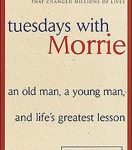 ༩ མཱོ་རཱིས་དང་མཉམ་དུ་བསྐྱལ་བའི་གཟའ་མིག་དམར། Tuesdays with Morrie.
༩ མཱོ་རཱིས་དང་མཉམ་དུ་བསྐྱལ་བའི་གཟའ་མིག་དམར། Tuesdays with Morrie.
ཨ་རིའི་རྩོམ་པ་པོ། Mitch Albom (American)
པར་སྐྲུན་བྱས་ལོ། ༡༩༩༧ 1997.
ཤོག་གྲངས་ ༡༩༢ 192 pages.
རྩོམ་རིགས། དྲན་ཐོ། Genre: Memoir.
མཱོ་རཱིས་དང་མཉམ་དུ་བསྐྱལ་བའི་གཟའ་མིག་དམར་ཞེས་པ་ནི་སྤྱི་ལོ་༡༩༩༧ ལོར་ཐོག་མར་དཔར་དུ་བསྐྲུན་པ་ནས་མིག་སྔའི་བར་འདིར་བྲིན་ཆེ་ཤོས་ཀྱི་དེབ་ཅིག་ཡིན། མི་ཚེའི་བྱུང་བ་བརྗོད་པའི་དངོས་བྲིས་བརྩམས་ཆོས་འདིས་འདས་པའི་ལོ་ངོ་བཅུ་ཕྲག་གཉིས་ལྷག་གི་རིང་འཇིག་རྟེན་འདིར་བློ་འགྱེད་དང་། བློ་སྟོབས་བསྩལ་དང་སྩོལ་བཞིན་ཡོད། དེབ་འདི་འཛམ་གླིང་གི་སྐད་ཡིག་ཆེ་ཁག་སུམ་ཅུ་ལྷག་གི་ནང་ཡིག་སྒྱུར་བྱས་ཤིང་། གླིང་ཕྲན་བདུན་པོའི་སྟེང་གི་རྒྱལ་ཁབ་མི་འདྲ་བ་བཅོ་ལྔ་ཙམ་ནས་པར་བསྐྲུན་འགྲེམ་སྤེལ་བྱས་ཡོད། བརྩམས་ཆོས་འདིའི་སྲོག་ཤིང་ཏུ་གྱུར་ཡོད་པའི་མི་སྣ་ནི་དགེ་རྒན་ཆེན་མོ་མཱོ་རཱིས་ཡིན། ཁོང་ལ་དུས་སྐབས་དེར་བཅོས་ཐབས་མེད་ཅིང་། དེང་གི་ཆར་ཡང་མཐོང་དཀོན་པའི་དབང་རྩ་མ་ལག་གི་ནད་གཞི་ཚབས་ཆེན་ཞིག་ཕོགས། ནད་གཞི་དེས་མིའི་ལུས་སྟེང་གི་ཤ་རྒྱུས་རེ་རེ་ནས་ཞ་བར་བྱེད་ཅིང་། མཐར་ལུས་པོ་ཁྱོན་ཡཱང་ལྭ་ཕྱེ་མ་ཚ་བོའི་ནང་བཞག་པ་ལྟར་ལུས་པོས་ལུས་པོ་མི་འཁྱོགས་པ་མ་ཟད། གློ་བས་དབུགས་གཏོང་ལེན་བྱེད་པའི་ཤུགས་ཀྱང་མེད་པར་གྱུར་ནས་ཚེ་སྲོག་འཇིག་པའི་ནད་གཞི་ཞིག་ཡིན། འཆི་བ་མགོ་ཐོག་ཏུ་འབབ་པའི་དགེ་རྒན་ཆེན་མོ་འདིས་གསོན་གནས་དང་འཆི་བའི་དོན་སྙིང་གླེང་ཞིང་། འཇིག་རྟེན་སྤྱིའི་ལྟ་ཚུལ་མང་པོ་ལ་དོགས་འདྲི་དང་། བློ་སྟོབས་ཆེན་པོས་འཆི་བར་གདོང་ལེན་བྱས་ཡོད་པ་མ་ཟད། ཁོང་གི་ལུས་གཞི་བདེ་ཐང་ཡིན་དུས་ཀྱི་འཚོ་བས་འཆི་ཁའི་བརྗིད་ཉམས་དང་བསམ་བློར་རྗེས་གནོན་བྱས་ཡོད། དེབ་འདི་འབྲི་མཁན་ནི་ཁོང་གི་སློབ་ཆེན་སྐབས་ཀྱི་སློབ་མ་ཞིག་ཡིན། ནད་ཀྱིས་མནར་བཞིན་པའི་སྐབས་སུ་དགེ་རྒན་ཆེན་མོ་ཁོང་གིས་རང་གི་སློབ་མ་ཟུར་པ་མཱིས་ཆི་(Mitch Albom) ལ་དམིགས་བསལ་གྱི་མཇུག་མཐའི་སློབ་ཐུན་ཞིག་གོ་སྒྲིག་ཞུས། དེབ་འདི་ནི་དགེ་རྒན་ཁོང་གིས་འཇིག་རྟེན་འདིར་ཁྲིད་པའི་མཇུག་མཐའི་སློབ་ཐུན་གཅིག་དེ་ཡིན་ལ། སློབ་ཐུན་འདིར་འཆི་བ་དང་། བརྩེ་དུང་། རིག་གཞུང་། གཉེན་སྒྲིག བློ་འགྱོད། ང་ཚོས་འཚོ་གནས་བྱེད་བཞིན་པའི་འཇིག་རྟེན་ནམ་འཚོ་བ་སོགས་ཚུད་ཡོད་ཅིང་། དེབ་ཆུང་འདིར་ཚུད་པའི་མྱོང་ཚོར་དང་ཤེས་རབ་ཀྱིས་ཁྱེད་ཀྱི་བརྒྱུད་ལ་བརྩེ་དུང་དང་བློ་འགྱེད་ཀྱི་མྱུ་གུ་རྒྱས་པའི་བརླན་དང་འོད་སྣང་གཉིས་ཀ་སྟེར་ཐུབ་པ་མ་ཟད། འདིས་ཁྱེད་ལ་འཚོ་གནས་ཀྱི་ལམ་ཐིག་ཅིག་སྟོན་ཐུབ། ཆོས་ཁས་མི་ལེན་མཁན་ཞིག་གིས་འཚོ་བའི་རྐང་ལམ་བརྒྱུད་པའི་མྱོང་བྲིས་འདིས་ཁྱེད་ལ་རྒ་བ་དང་། བཟོད་སྒོམ། གཉེན་ཚན། སྙིང་རྗེ་སོགས་ཀྱི་གལ་གནད་སྟོན་པ་འདིས་ཀློག་མཁན་ཁྱེད་ལ་ཞི་བདེ་ནི་མི་སེམས་ལས་རྙེད་དགོས་པའི་གནད་འགག་དེ་ལྷམ་མེར་འཆར་བར་བྱེད་ངེས་ཡིན། །
In this international bestseller, Mitch Albom, an author and sports columnist, recounts his visits with his former college professor and mentor, Morrie Schwartz, from some twenty years before. He finds that his teacher is dying, with only months to live, and makes it a point to pay weekly visits to him, just like in his college days. The lessons learned then and the new insights his mentor provides in his last stage in life teaches the author and the reader important life lessons. The book has been translated into over 40 languages and has also been adapted into a movie.
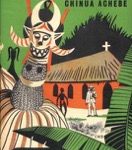 ༡༠ འཐོར་ཞིག་ཏུ་འགྲོ་རྒྱུ། Things Fall Apart.
༡༠ འཐོར་ཞིག་ཏུ་འགྲོ་རྒྱུ། Things Fall Apart.
ནི་ཇེ་རི་ཡའི་རྩོམ་པ་པོ། Chinua Achebe (Nigerian)
པར་སྐྲུན་བྱས་ལོ། ༡༩༥༨ 1958.
ཤོག་གྲངས་ ༡༨༡ 181 pages.
རྩོམ་རིགས། ལོ་རྒྱུས་ཅན་གྱི་བརྩམས་སྒྲུང་། Genre: Historical Fiction.
དེབ་འདི་ནི་ ནི་ཇེ་རི་ཡའི་བརྩམས་སྒྲུང་འབྲི་མཁན་སྙན་གྲགས་ཆེ་ཤོས་ཀྱིས་བརྩམས་པའི་ཧ་ཅང་ཀློག་རྒྱ་ཆེན་པོ་བྱུང་བའི་བརྩམས་སྒྲུང་ཞིག་ཡིན། སྒྲུང་འདི་ནི་དུས་རབས་བཅུ་དགུ་པའི་ཁྲོད་ཀྱི་ ནེ་ཇི་རི་ཡའི་རྒྱལ་ཁབ་ཏུ་འབྱུང་ཞིང་། ཨ་ཧྥི་རི་ཀའི་ཡུལ་དུ་ཕྱིའི་བཙན་འཛུལ་བྱུང་པའི་སྔ་གཞུག་གཉིས་ཀའི་སྐབས་ཀྱི་ཉམས་མྱོང་རིགས་གསལ་བར་སྟོན་ཅིང་རྟོག་ཞིབ་རིན་ཐང་བྲལ་བ་བྱས་པ་ཞིག་རེད། ཡུ་རོབ་པ་རྣམས་ཀྱིས་ཨ་ཧྥི་རི་ཀའི་གླིང་དུ་དབང་བསྒྱུར་བྱས་པ་དང་དུས་མཚུངས་སུ། བརྩམས་སྒྲུང་གི་མི་སྣ་རྣམས་ཀྱིས་དབང་ཤེད་ཆེ་བའི་དཔུང་གི་ཁ་གཏད་དུ་རང་གི་སྲོལ་རྒྱུན་དང་ངོ་བོ་འཛིན་ཐབས་ཀྱི་འཐབ་རྩོད་བྱེད་པ་རེད། དེབ་འདི་ནི་རྒྱལ་སྤྱིའི་ཁྲོད་ཀྱི་བྲིན་ཤོས་ཀྱི་དེབ་ཅིག་ཡིན་པ་མ་ཟད། སྐད་ ༥༧ ཁྲོད་དུ་ཕབ་བསྒྱུར་བྱས་ཡོད་པ་རེད། དེབ་འདིར་ཨ་ཧྥི་རི་ཀའི་མིའི་ངག་ནས་རང་གི་ཉམས་མྱོང་བསྟན་པ་དེ་ནི་ཧ་ཅང་གྲགས་ཆེ་བ་བྱུང་བ་རེད།
One of the most widely read novels from Nigeria’s most famous novelist. The story takes place in late 19th century Nigeria, and is an illuminating and invaluable examination of the pre- and post-colonial African experience. As Europe establishes itself on the African continent, the novel’s characters struggle to hold onto their traditions and identity in the face of overpowering forces. It is an international bestseller and has been translated into 57 languages. It is acclaimed for its portrayal of the African experience from an African voice.
 ༡༡ ངའི་ཕྱུ་ར་སུས་འཁྱེར་པ་རེད། Who Moved My Cheese?: An Amazing Way to Deal with Change in Your Work and in Your Life.
༡༡ ངའི་ཕྱུ་ར་སུས་འཁྱེར་པ་རེད། Who Moved My Cheese?: An Amazing Way to Deal with Change in Your Work and in Your Life.
ཨ་རིའི་རྩོམ་པ་པོ། Spencer Johnson (American)
པར་སྐྲུན་བྱས་ལོ། ༡༩༩༨ 1998.
ཤོག་གྲངས་ ༩༥ 95 pages.
རྩོམ་རིགས། རང་རོགས་དང་སྐུལ་ལྕག་ཅན། Genre: Self-help/Motivational.
དེབ་འདི་ནི་ཚོང་ལས་ཀྱི་འཇིག་རྟེན་ལ་ཕུལ་བྱུང་གི་དེབ་ཅིག་རེད། སྐུལ་ལྕག་རང་བཞིན་ཅན་གྱི་དེབ་འདིས་ནི་སྐྱེ་བོ་སུ་ཞིག་གི་ལས་ཀའི་ཁྲོད་ཀྱི་འགྱུར་བ་ལ་ཇི་ལྟར་གདོང་ལེན་བྱེད་ཕྱོགས་སྟོན་ཅིང་། དེ་ཡང་ཙི་ཙི་ཆུང་ཆུང་རིགས་མི་འདྲ་བ་བཞི་དང་། དེ་དག་གིས་རང་གི་ “ཕྱུ་ར་”གློ་བུར་དུ་ཡལ་བར་གྱུར་སྐབས་ཇི་ལྟར་རྣམ་འགྱུར་སྟོན་པ་དཔེར་མཚོན་དུ་བཀོད་ནས་སྟོན། དེབ་འདིས་འགྱུར་བ་ལ་ཇི་ལྟར་སྔོན་དཔག་བྱེད་པ། འགྱུར་བ་ཇི་ལྟར་རྟོག་པ། འགྱུར་བ་ཇི་ལྟར་ལེན་པ། འགྱུར་བ་ཇི་ལྟར་རོལ་པ་བཅས་ཀྱི་སྐོར་ལ་ལམ་སྟོན་བྱེད་ཅིང་། གོ་ལའི་ཁྱོན་དུ་ས་ཡ་ ༢༦ ལྷག་ཚོང་འགྲེམས་བྱས་ཤིང་སྐད་ ༢༧ ཀྱི་ནང་དུ་བསྒྱུར་ཡོད། དེབ་འདི་ནི་མུ་མཐུད་ནས་ཚོང་ལས་ཀྱི་དེབ་བྲིན་ཤོས་ཤིག་ཆགས་བསྡད་ཡོད་པ་རེད།
A classic read for the business world. This motivational text describes how to deal with change in one’s work by using the example of four different types of mice characters and how they react to the sudden disappearance of their “cheese.” The book offers guidance in how to anticipate change, monitor change, adapt to change, and enjoy change. The book has sold more than 26 million copies worldwide and has been translated into 37 languages. It remains one of the best-selling business books.
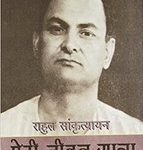 ༡༢ ངའི་མི་ཚེའི་འགྲུལ་བཞུད། [Selections from the Tibet Travelogues of Rahul Sankrityayan: Meri Jeevan Yatra].
༡༢ ངའི་མི་ཚེའི་འགྲུལ་བཞུད། [Selections from the Tibet Travelogues of Rahul Sankrityayan: Meri Jeevan Yatra].
རྒྱ་གར་གྱི་རྩོམ་པ་པོ། Rahul Sankrityayan (Indian).
1929-1938.
རྩོམ་རིགས། ལོ་རྒྱུས་དང་འགྲུལ་བཞུད། Genre: History/Travel.
ཕྱི་ལོ་ ༡༩༢༩ ནས་ ༡༩༣༨ བར་དུ་རྒྱ་གར་མཁས་པ་གྲགས་ཅན་ ར་ཧུལ་ལགས་ཀྱིས་བོད་དུ་འགྲུལ་བཞུད་ཐེངས་འགའ་བྱས་ཏེ་རྒྱ་གར་གྱི་དཔེ་རྙིང་དང་ཆོས་དཔེ་འཚོལ་བསྡུ་བྱས་ཤིང་། ཁོང་གི་འགྲུལ་བཞུད་ཀྱི་སྐབས་སུ་བོད་ཀྱི་མཁས་པ་གྲགས་ཅན་དགེ་འདུན་ཆོས་འཕེལ་མཆོག་ཀྱང་ལྷན་དུ་ཕེབས་ཡོད། ཁོང་གི་འགྲུལ་བཞུད་ཀྱི་དེབ་འདིར་ས་གནས་གང་དུ་བསྐྱོད་པ་དང་མི་སུ་ལ་མཇལ་བ་སོགས་ཞིབ་གསལ་འཁོད་ཡོད། འདི་ནི་རྒྱ་གར་སྐད་ནས་Pཨེར་ཧུལ་ལགས་ཀྱི་རང་རྣམ་ལས་དགེ་འདུན་ཆོས་འཕེལ་དང་འབྲེལ་ཡོད་ཀྱི་དུམ་བུ་རྣམས་བཏུས་ནས་བསྒྱུར་རྒྱུ།
From 1929-1938, the famous Hindi scholar Rahul Sankrityayan made a few trips to Tibet to collect Tibetan manuscripts and research Buddhist centers. On the last of these trips, his traveling companions included the celebrated Tibetan intellectual Gendun Chopel. His travelogues based on these trips are filled with details of the places he visited and the individuals he met. Translation from Hindi.
“ཕྱི་རྩོམ་བོད་འགྱུར་མ་བརྒྱ་རྩ་བརྒྱད་ཀྱི་ལས་འཆར།” གྱི་བཅུ་ཚན་དང་པོ། ༢༠༡༦
བཅུ་ཚན་དང་པོའི་ཁོངས་སུ་འཁོད་པའི་དེབ་རྣམས་ཀྱི་ཁ་བྱང་།
- ཁྲོ་བོའི་རྒུན་འབྲུམ། (The Grapes of Wrath) རྩོམ་པ་པོ། ཇཱོན་ སི་ཏའེན་བྷེག (John Steinbeck)
- རླབས་ཆེན་གྷེ་ཚི་བྷི། (The Great Gatsby) རྩོམ་པ་པོ། ཧྥ་རན་སེ་སི་ སི་ཁོ་ཊི་ ཧྥེ་ཛི་གྷི་རེ་ཌི། ( Scott Fitzgerald)
- མཚན་མོ། (Night) རྩོམ་པ་པོ། ཨི་ལའེ་ ཝེ་སེལ། (Elie Wiesel) ༼འདིའི་འགྱུར་ད་ལྟ་གྲུབ་ཡོད།༽
- འབྲུག་སྒྲ་སྟེ། ཆོས་རྒྱམ་དྲུང་པ་དང་ལྷན་དུ་ངེད་ཀྱི་མི་ཚེ། (Dragon Thunder: My Life with
- Chogyam Trungpa) རྩོམ་པ་པོ། ཌ་ཡ་ནཱ་ སྨུག་པོ། (Diana J. Mukpo)
- ལམ་ཁ་ལ། (On the Road) རྩོམ་པ་པོ། འཇེག་ ཁེ་རོ་ཨེག (Jack Kerouac)
- སྤོབས་པ་དང་ཕྱོགས་རིས། (Pride and Prejudice) རྩོམ་པ་པོ། ཇཱེན་ ཨའུ་སི་ཊེན། (Jane Austen)
- བྱིའུ་ལད་སྐད་མ་གསོད་པ། (To Kill a Mockingbird) རྩོམ་པ་པོ། ཧར་པཱར། ལི། (Harper Lee)
- *ཨ་ཅེ་མེ་ཏོག་གཡང་འཛིན་མ། (The Lady of the Camellias) རྩོམ་པ་པོ། ཨ་ལིཀ་ཟན་ཌར་རྡུ་མ། (Alexandre Dummas Fil) ༼འདིའི་འགྱུར་ད་ལྟ་གྲུབ་ཡོད།༽
- ཤེས་བྱའི་ལོ་རྒྱུས། (A History of Knowledge) རྩོམ་པ་པོ། ཆར་ལི་སི་ ཝན་ དོར་རེན། (Charles Van Doren)
བྱ་གཞག་འདིར་རྗེས་སུ་ཡི་རང་ཡོད། ལས་གཞི་འདིར་མཉམ་ཞུགས་བྱེད་ཆོག་གམ།
གདོད་མིའི་མི་རིགས་སྐོར་གྱི་དེབ་དེ་བསྒྱུར་ན་འདོད། ཡིན་ཡང་ཚིག་མཛོད་ལ་མ་བརྟེན་པར་བསྒྱུར་མི་ནུས།
བྱ་གཞག་རླབས་ཆེན་རེད། འབྲེལ་ཡོད་ཚང་མར་ཡི་རང་ཡོད།
ཕྱི་རྩོམ་བོད་འགྱུར་མ་བརྒྱ་རྩ་བརྒྱད་ཀྱི་བཅུ་ཚན་དང་པོ་གྲུབ་ཟིན་པར་རྗེས་སུ་ཡི་རང་དང་བཅས། དེ་དག་ག་ནས་ཐོབ་ཀྱི་ཡོད་དམ།
ལས་ཞོར་ལ་ཁྱེད་ཅག་གི་ལས་དོན་ལ་རྒྱབ་སྐྱོར་མཚོན་ཆེད་དེབ་ཅིག་འགྱུར་འདུན་བྱུང་བས་གོ་སྐབས་ཨེ་ཡོད།